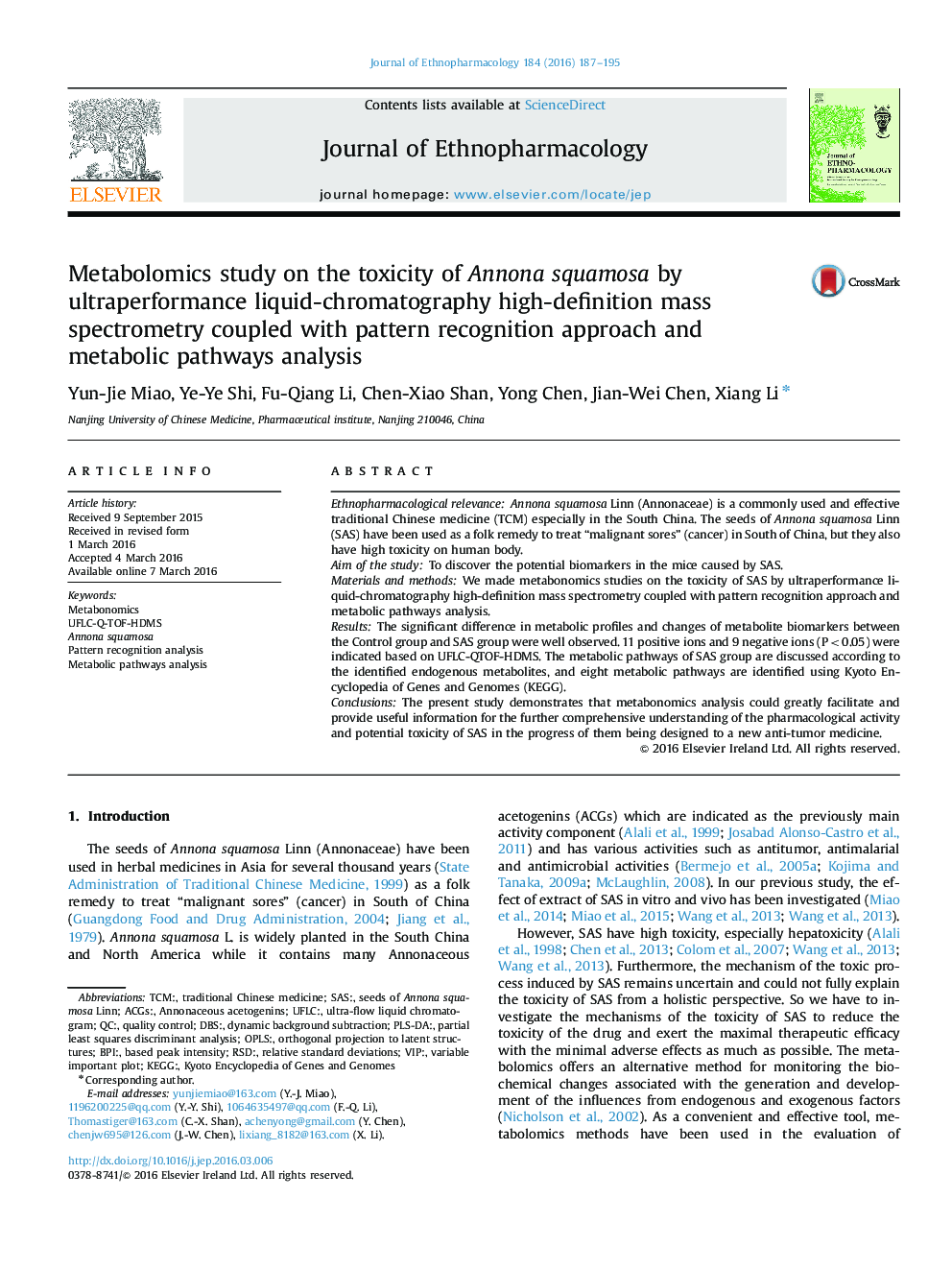| Article ID | Journal | Published Year | Pages | File Type |
|---|---|---|---|---|
| 2544787 | Journal of Ethnopharmacology | 2016 | 9 Pages |
Ethnopharmacological relevanceAnnona squamosa Linn (Annonaceae) is a commonly used and effective traditional Chinese medicine (TCM) especially in the South China. The seeds of Annona squamosa Linn (SAS) have been used as a folk remedy to treat “malignant sores” (cancer) in South of China, but they also have high toxicity on human body.Aim of the studyTo discover the potential biomarkers in the mice caused by SAS.Materials and methodsWe made metabonomics studies on the toxicity of SAS by ultraperformance liquid-chromatography high-definition mass spectrometry coupled with pattern recognition approach and metabolic pathways analysis.ResultsThe significant difference in metabolic profiles and changes of metabolite biomarkers between the Control group and SAS group were well observed. 11 positive ions and 9 negative ions (P<0.05) were indicated based on UFLC-QTOF-HDMS. The metabolic pathways of SAS group are discussed according to the identified endogenous metabolites, and eight metabolic pathways are identified using Kyoto Encyclopedia of Genes and Genomes (KEGG).ConclusionsThe present study demonstrates that metabonomics analysis could greatly facilitate and provide useful information for the further comprehensive understanding of the pharmacological activity and potential toxicity of SAS in the progress of them being designed to a new anti-tumor medicine.
Graphical abstractFigure optionsDownload full-size imageDownload high-quality image (149 K)Download as PowerPoint slide
